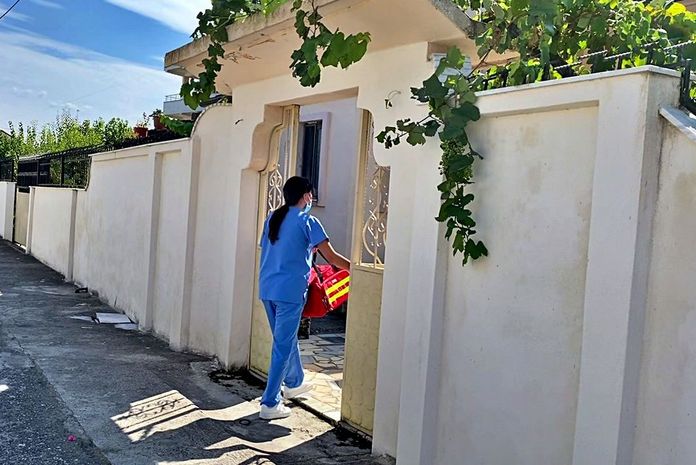
The Health for All Project (HAP) project aims to improve primary healthcare services for the Albanian population as a whole and for vulnerable groups in particular. Now in its third phase, the project can look back on eight years of high-impact implementation, whether in strengthening health management capacity, new models of home-based care services, infrastructure improvements or continuing medical education.
In 2015, the Health for All Project (HAP) - an initiative of the Swiss Agency for Development and Cooperation implemented by the Swiss Tropical and Public Health Institute - joined the Albanian government’s efforts to reform a struggling primary healthcare (PHC) system. The country faced significant challenges, including low budgets, poor quality of care and limited accessibility, especially for vulnerable groups. Using a comprehensive health systems strengthening approach, the project strategically identified the key elements that would produce the most significant and sustainable results for inclusive and quality healthcare, such as strengthening governance, managing human resources, updating clinical guidelines and protocols and improving infrastructure. Now, eight years later, here is how these key interventions have played out in moving Albania towards resilient, inclusive and sustainable health care.
Empowering governance and management
Recognising the need for sound policy, the HAP supported the development, approval and implementation of the Primary Healthcare Strategy 2020-2025. This strategic document marked a transformative shift by introducing new service models, updating PHC job profiles, developing protocols and guidelines for the management of NCDs, mental health disorders and care for the elderly, as well as investing in the improvement of PHC infrastructure.
“Albania has never had a strategic document on PHC in the past. HAP’s support in developing this strategic document has been remarkable, not only in providing insights on infrastructure, but also in introducing new models of PHC services, changing the provider’s mentality on service delivery, management of PHC services and education of citizens,” said Prof. Mira Rakacolli, Deputy Minister of Health.
With better policies in place, it was time to address the limited resources and poor management of the primary healthcare system. The Master of Health Management (MHM) programme, developed with HAP’s support, has significantly strengthened the country’s health management capacity and served as a motivating career step for health workers.
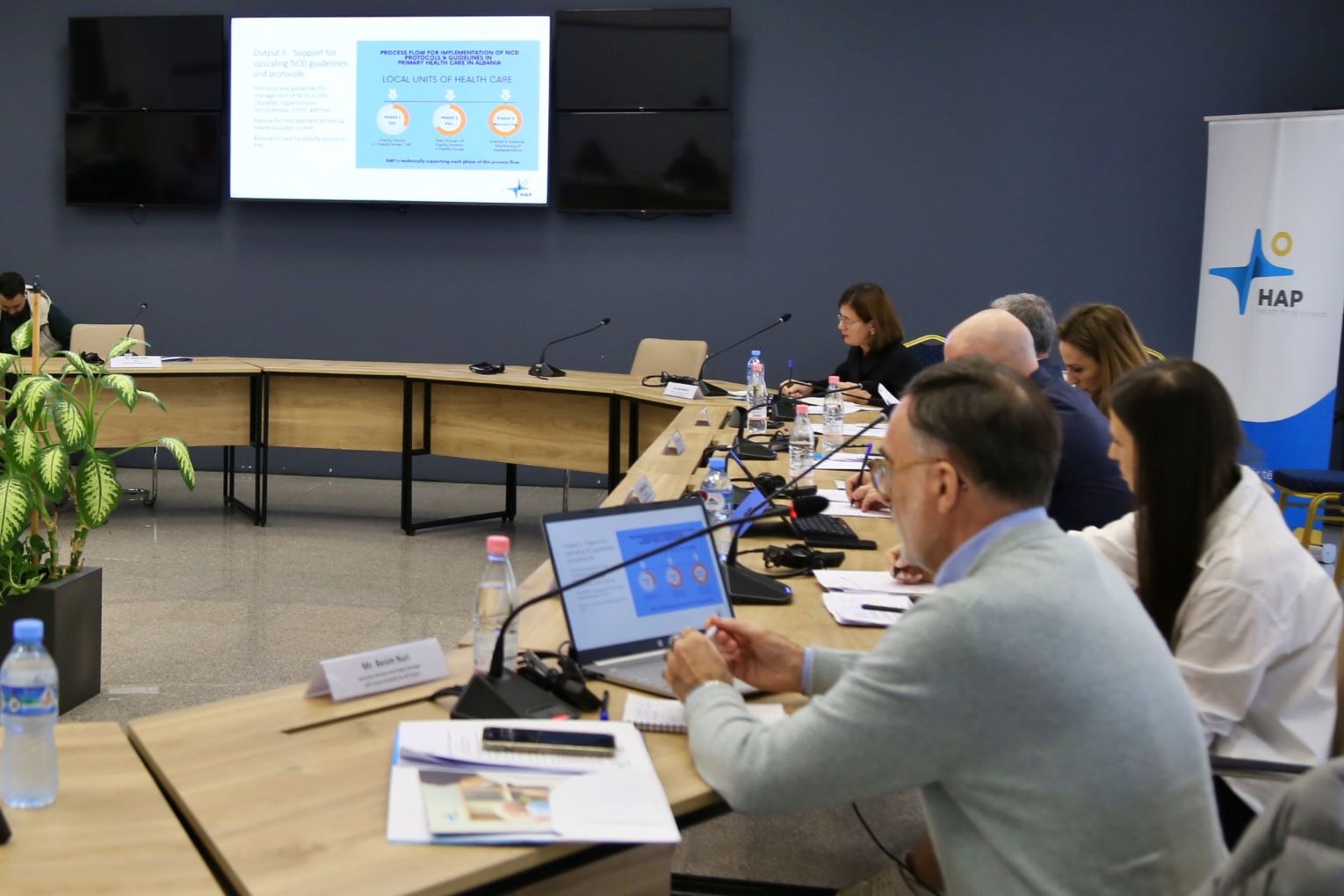
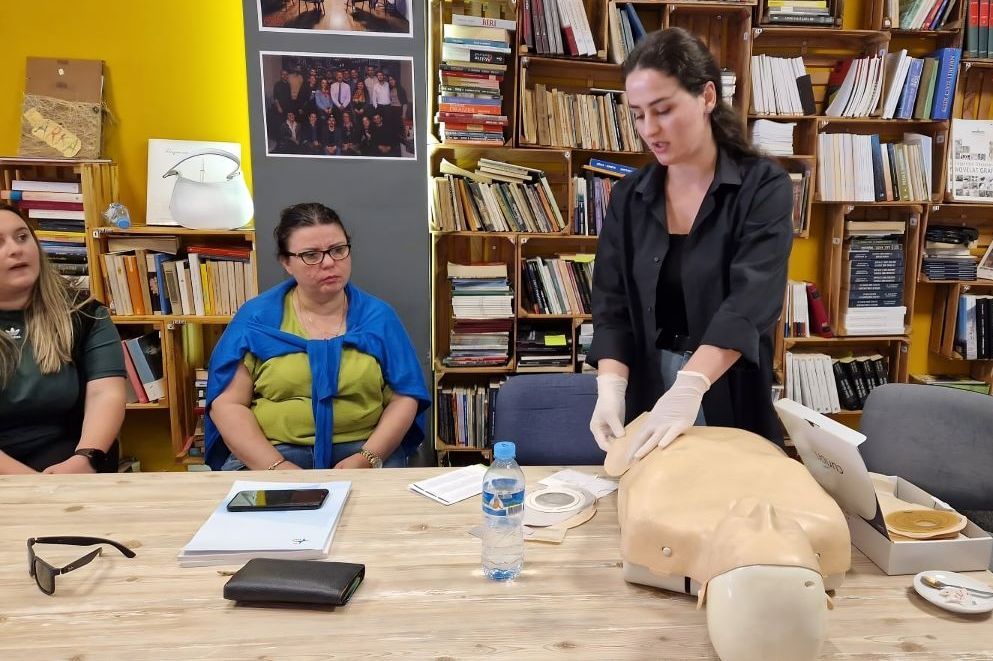
Home care and the empowered nurse: improving accessibility and sustainability
Committed to bringing healthcare to those who need it most, HAP introduced a new dimension to home care for the homebound chronically ill and elderly. The initiative not only reduced the burden on caregivers, but also empowered nurses with specialised training in advanced care procedures, contributing to improved patient outcomes in all of the project’s intervention regions.
“The nurses’ home visits are such a blessing. Before, I could only take him once for some blood tests. Now they come regularly and we don’t have to move him for his health checks. I’m very grateful because it’s a great help to us,” said M. B., the caring wife of a home care beneficiary.
In addition to continuing education, the role of nurses has been further strengthened through the development of new job profiles, including nurse for health education and check-up, family nurse, community nurse, etc., fine-tuning the services provided to the needs of the community. The establishment of a Master’s degree programme in Family Nursing has been HAP’s key contribution to shaping the new profile of the family nurse as a skilled professional able to work independently of physicians to meet the evolving needs of the healthcare system.
Ms Ilirjana Zekja, Dean of the Faculty of Medical Technical Sciences, called the Master in Family Nursing “a crucial intervention to train family nurses capable of providing advanced nursing care in PHC, including regular home care.”
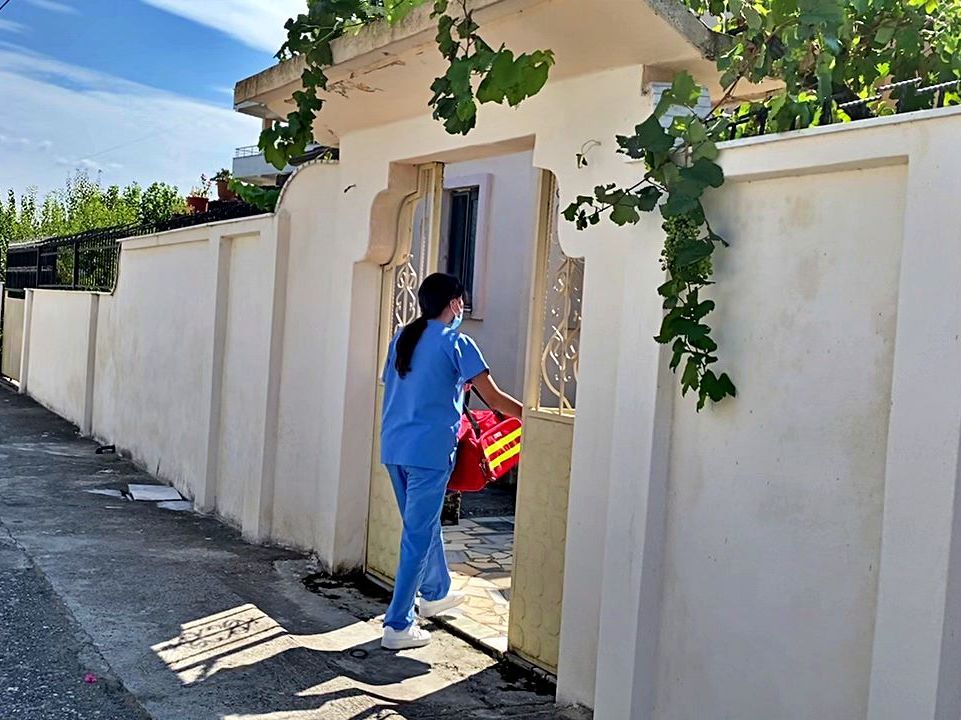
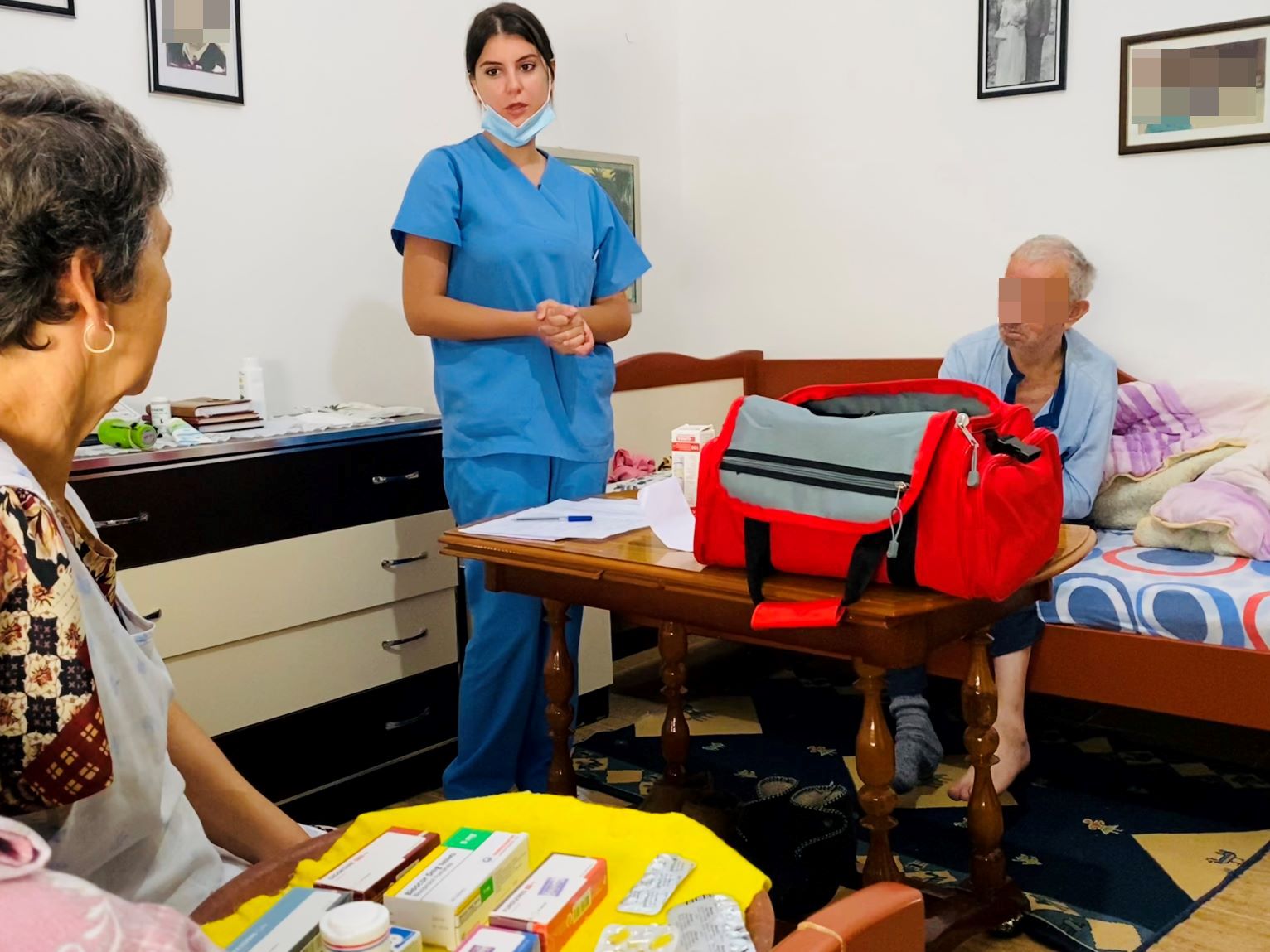
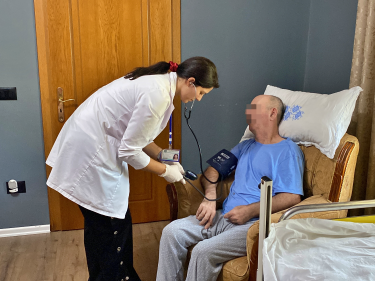
Improve quality of service: infrastructure, updated protocols, medical kits
HAP’s investment in infrastructure rehabilitation, in collaboration with the municipalities and local health authorities, has been key to increasing population coverage of essential services and improving the quality of care in the respective communities. To date, 31 health facilities have been rehabilitated and rebuilt, improving services for more than 240,000 citizens and working conditions for 432 health workers.
“Patients feel comfortable and enjoy their visits, as evidenced by the high number of visits after the rehabilitation. There’s a lot of gratitude towards HAP, not only from the health workers, but especially from the patients,” said Dr Bajram Lami, a family doctor at a rehabilitated health post.
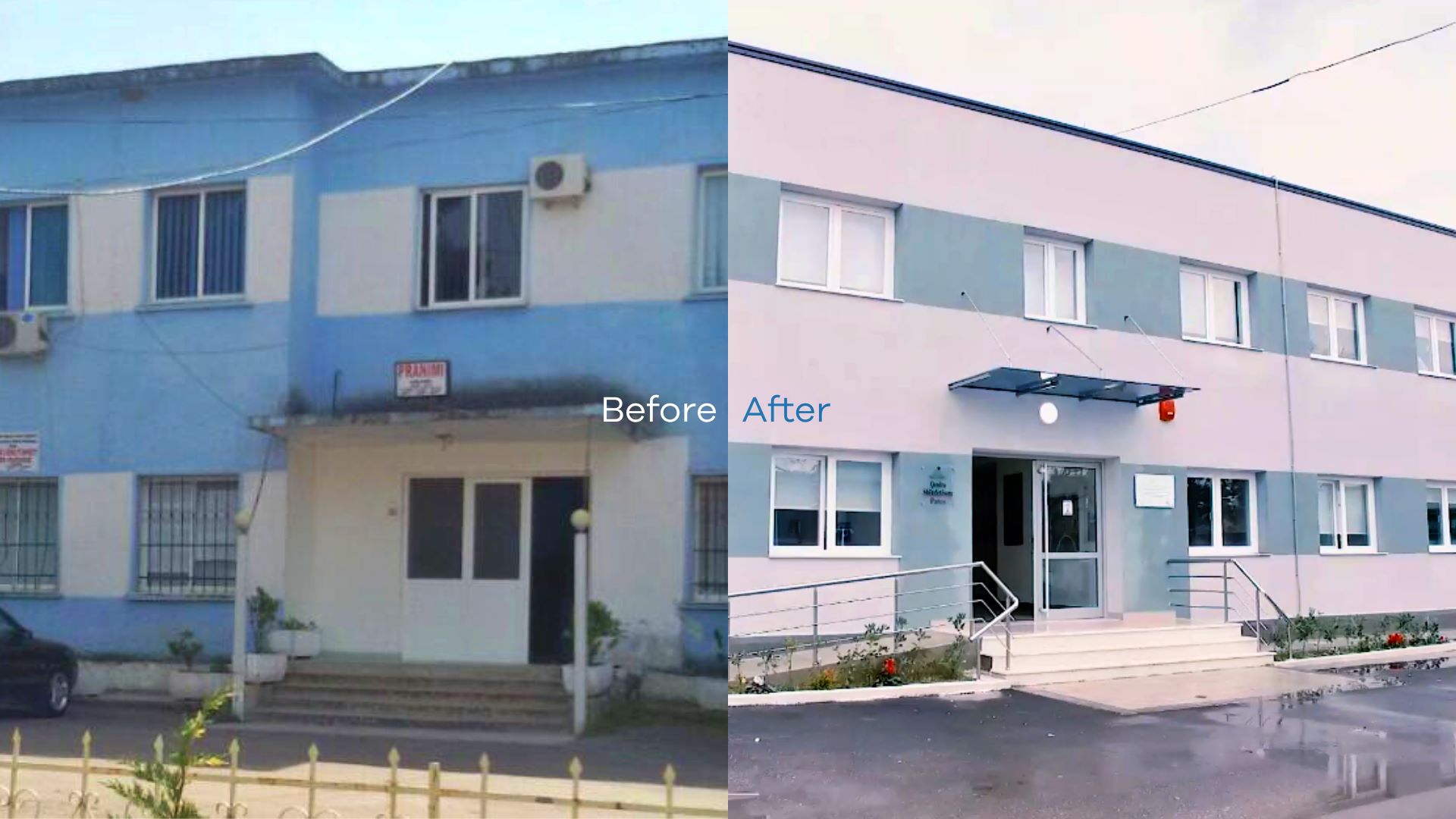
HAP has also actively contributed to the prevention and treatment of non-communicable diseases (NCDs) by supporting the development and implementation of clinical guidelines and protocols for five NCDs, mental health disorders and specialised care for the elderly, ensuring standardised and effective care and improving health outcomes for patients.
“The training offered by HAP has helped to strengthen my skills and competencies as a Family Nurse. It has increased my professional confidence and improved my ability to better manage and advise patients on cardiovascular disease and diabetes, our most frequent culprits,” Ms Mbaresa Dimo, a family nurse, said.
To support the implementation of the updated protocols and guidelines, HAP also distributed medical bags containing essential tools for physical examination, ensuring that health workers in 120 health centres are adequately equipped and that the quality of care is improved.
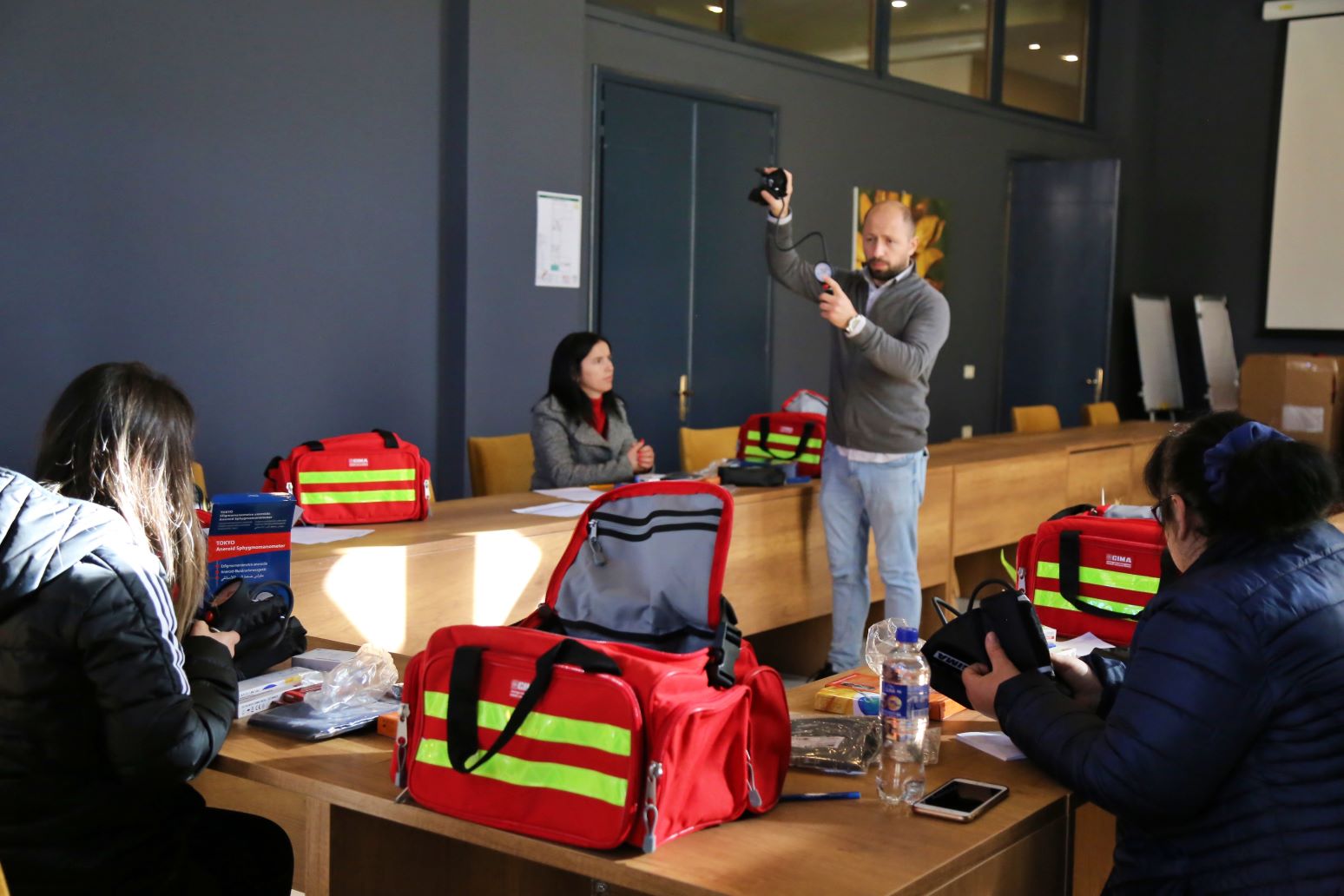
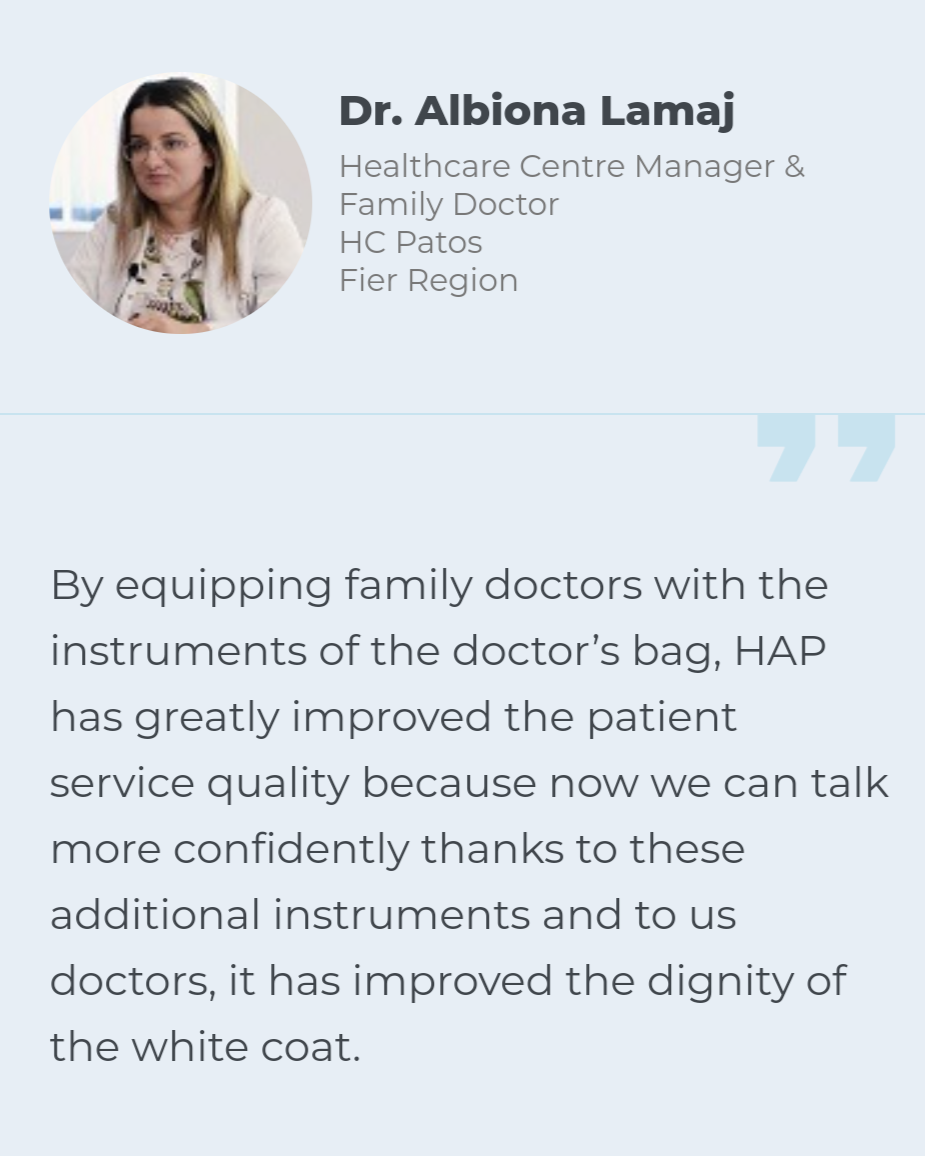
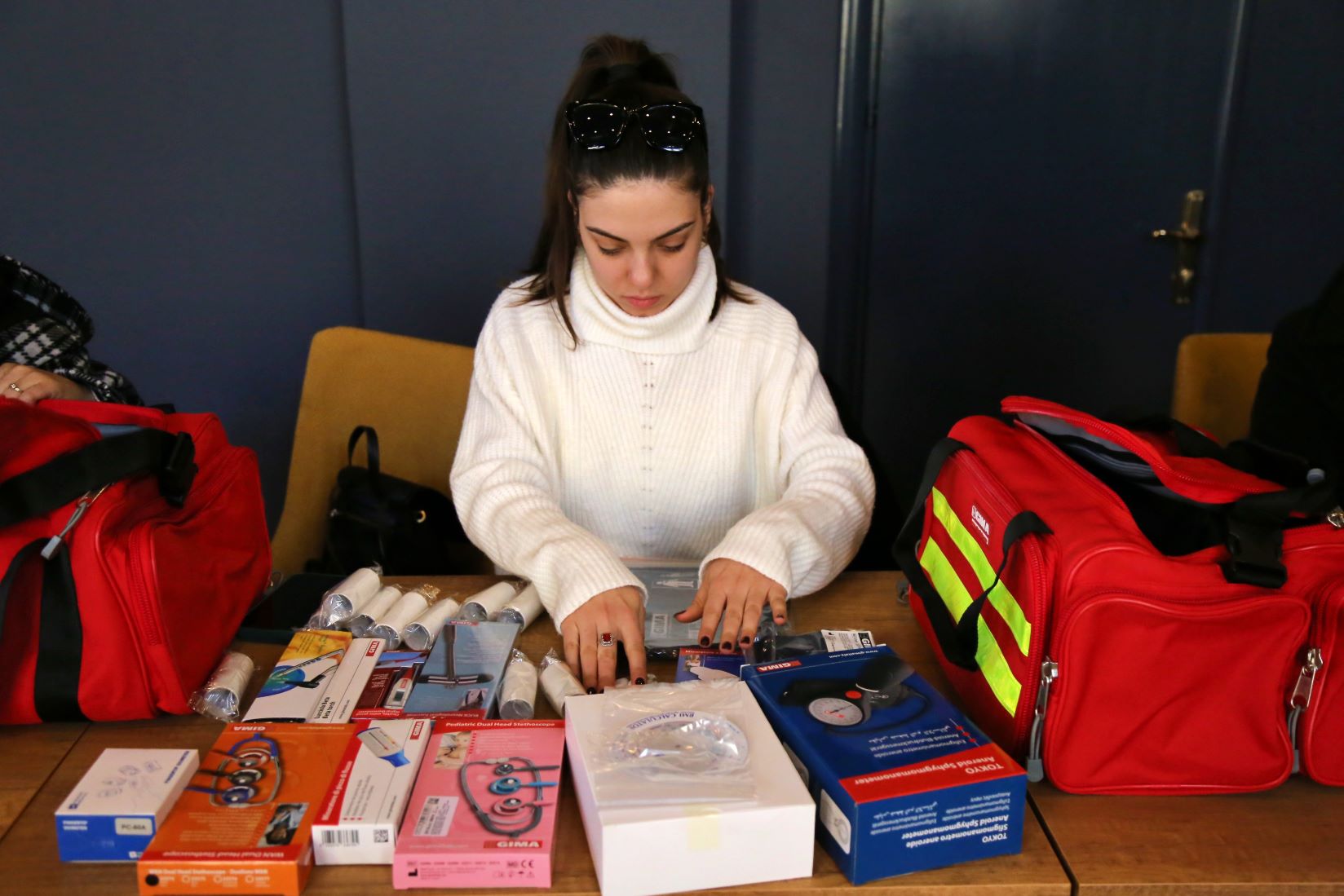
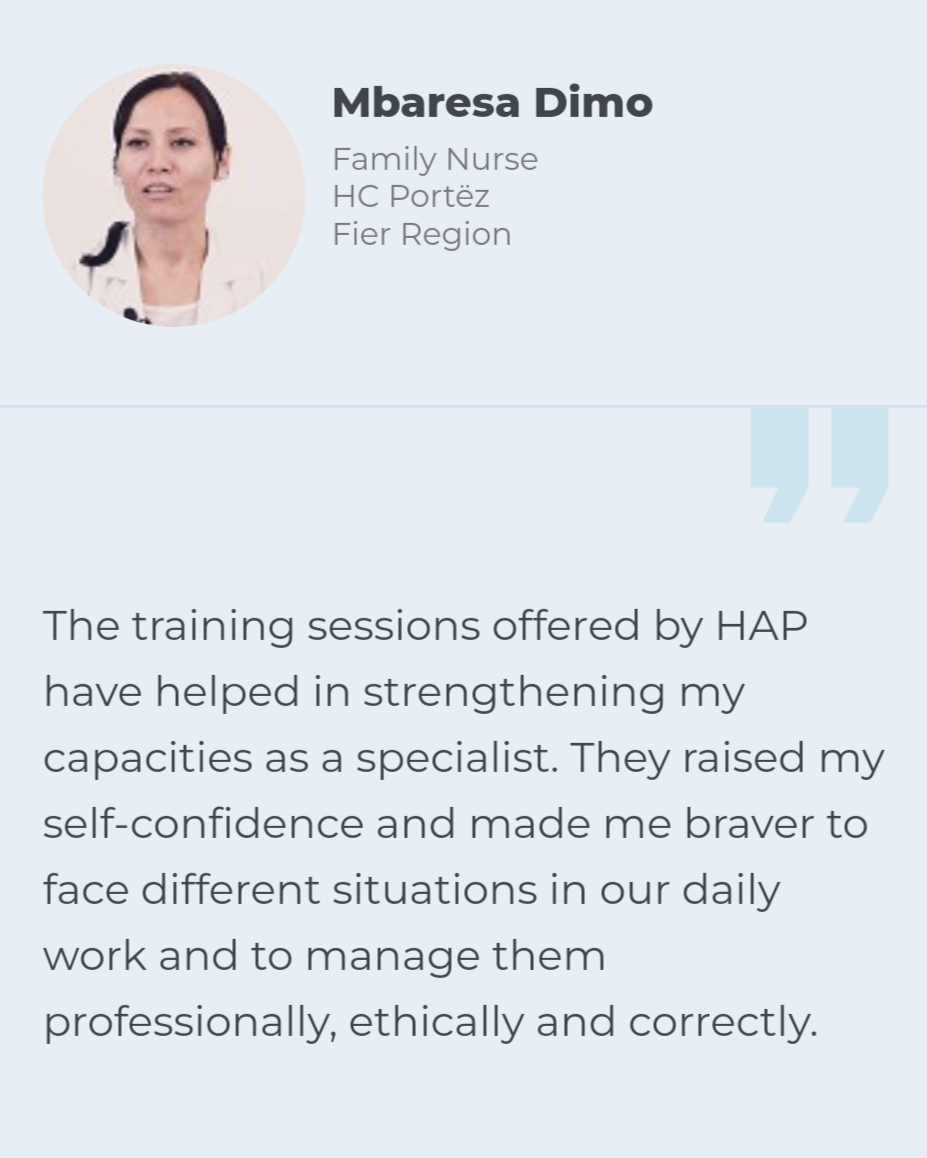
Establishing and strengthening continuing medical education through peer groups
Peer Groups [1] have played a key role in standardising health service practices among health professionals. This, in turn, is crucial for the scaling up of elements of the healthcare reform, such as NCD protocols and guidelines, new home-based care services, and more. A total of 977 family doctors and 4,129 family nurses in the 8 intervention regions have joined peer groups so far, with numbers increasing substantially year on year.
The President of the Order of Nurses, Ms Blerina Duka, described peer groups as “an effective tool with a direct impact on the quality of care”, and Dr. Malvina Manga, a Health Centre Manager and Family Doctor, explained how being part of a peer group had “improved my leadership qualities, my relationship with colleagues and my professional confidence”.
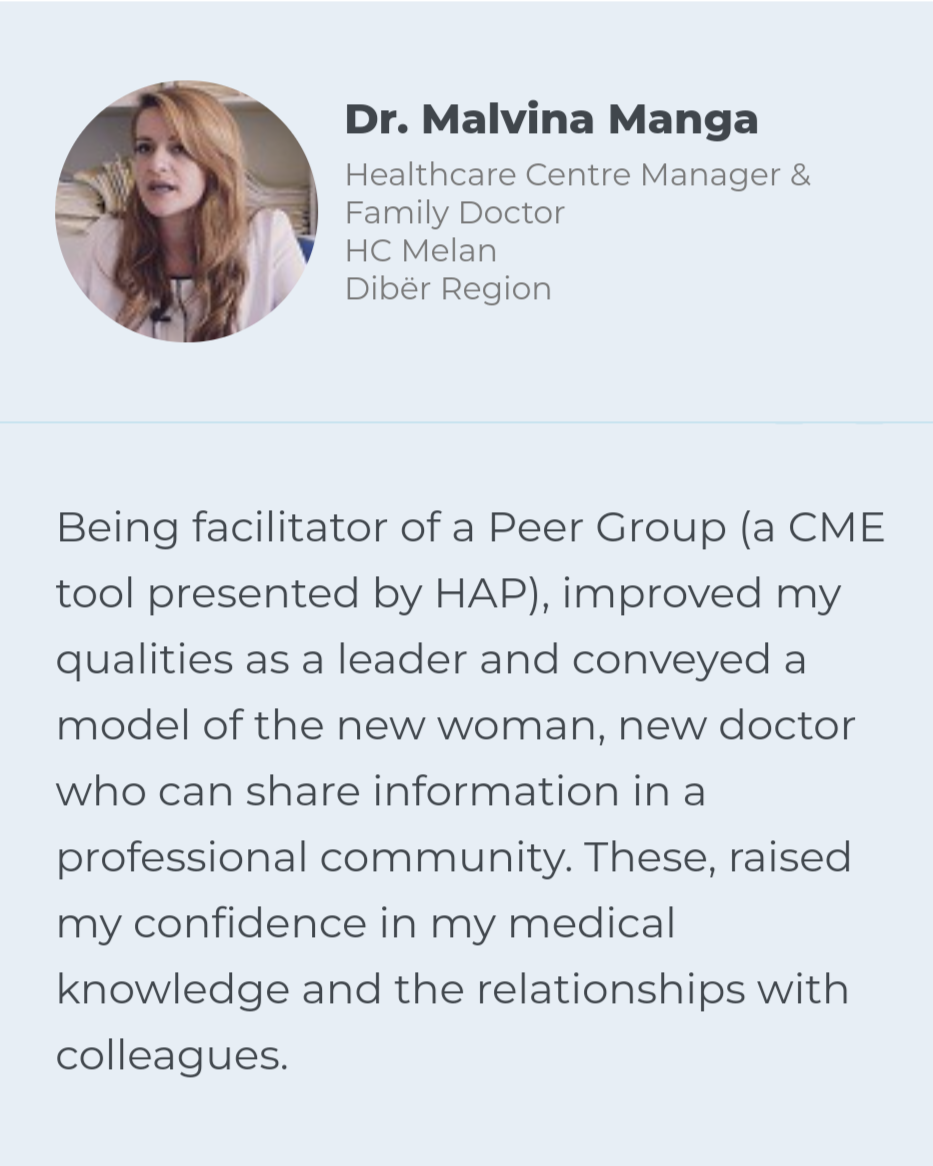
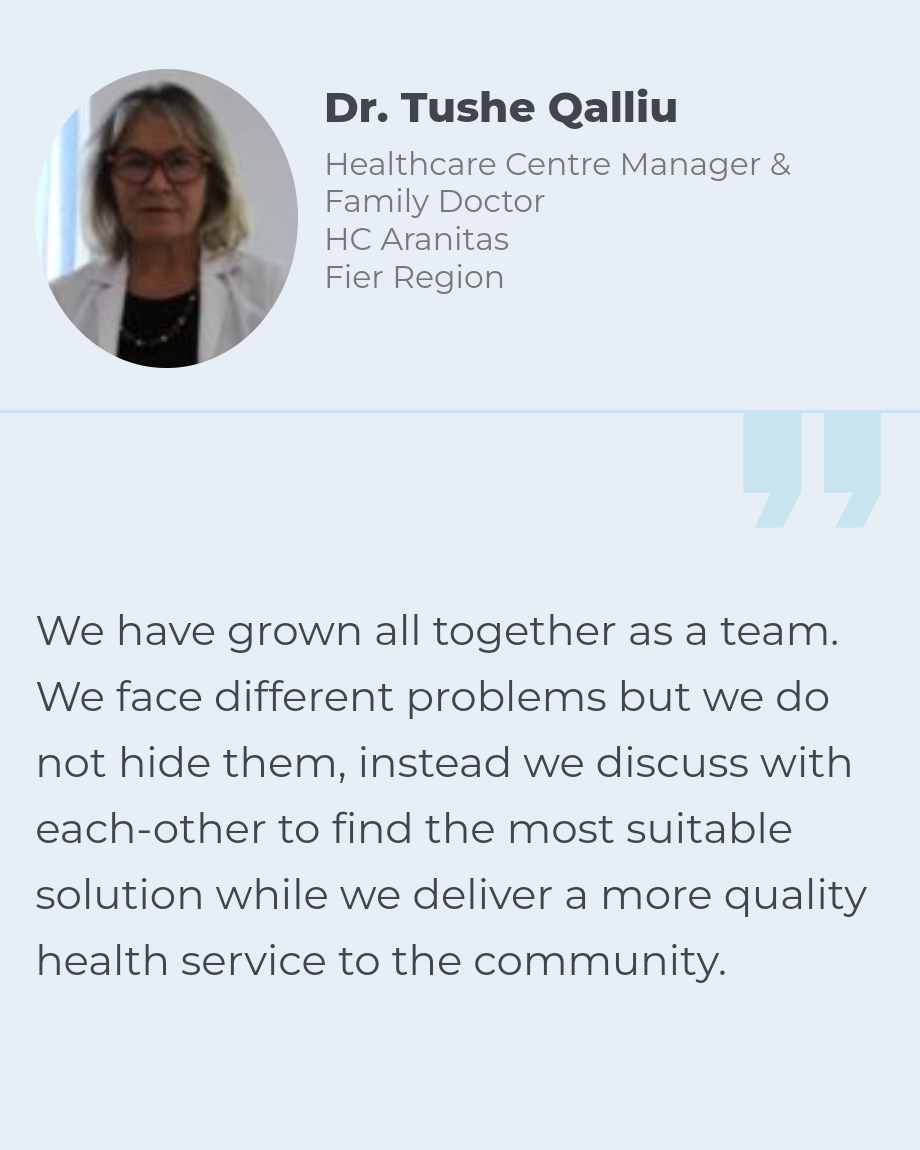
Consolidation phase: geographical expansion and collaboration
In its current consolidation phase, the HAP project is working to further strengthen local health units, reach more communities, integrate additional services into the health centre and enhance the inclusion of vulnerable groups through various advocacy initiatives.
The impact of the Health for All Project’s impact has been manifold and invaluable, making it a cornerstone for positive change in Albania's healthcare landscape. As the WHO’s National Public Health Officer, Mr. Gazmend Bejtja, noted, “HAP has done such an extraordinary work that it would not be an exaggeration to describe it as the “oxygen” of Albanian PHC”.
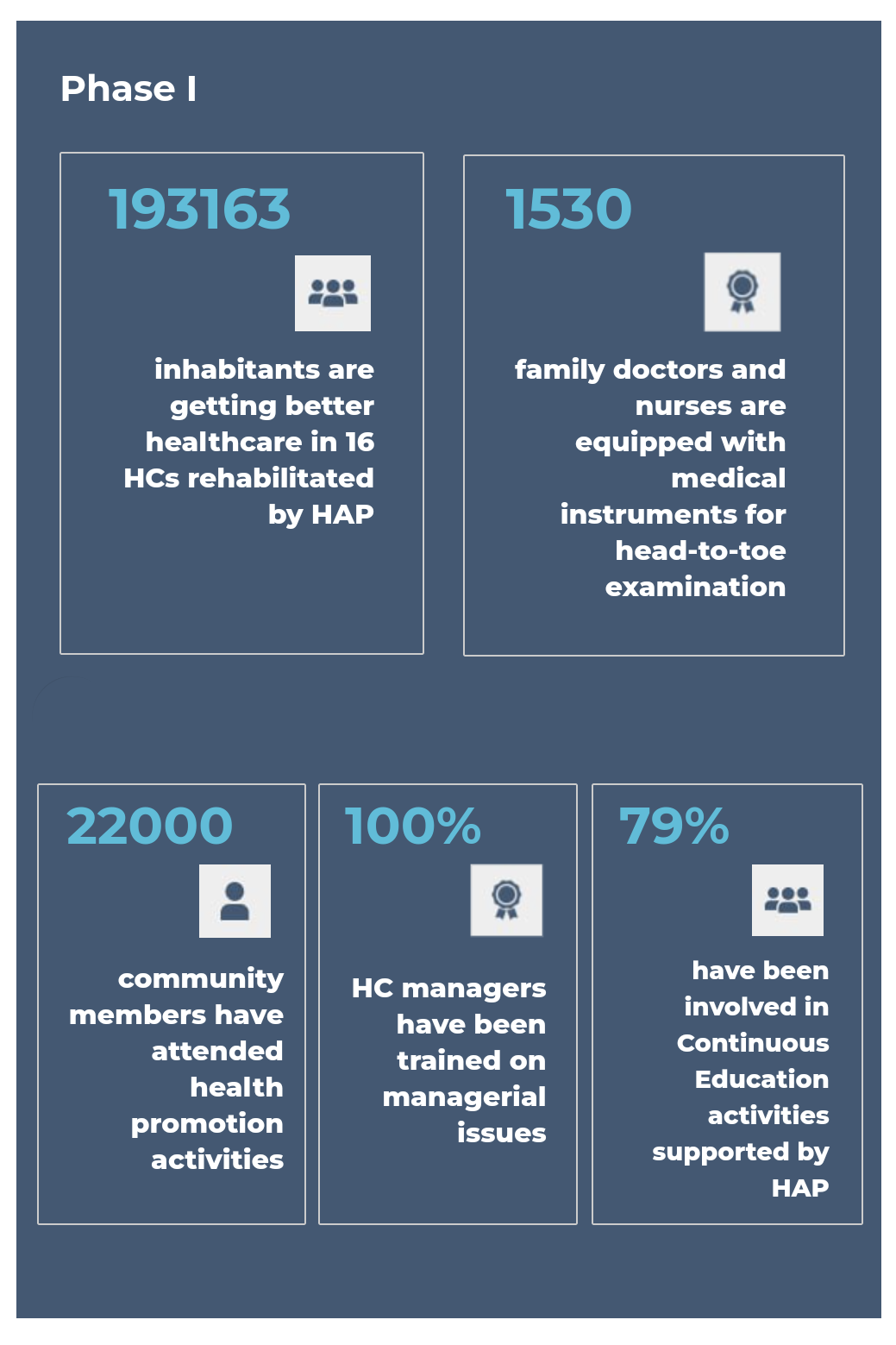
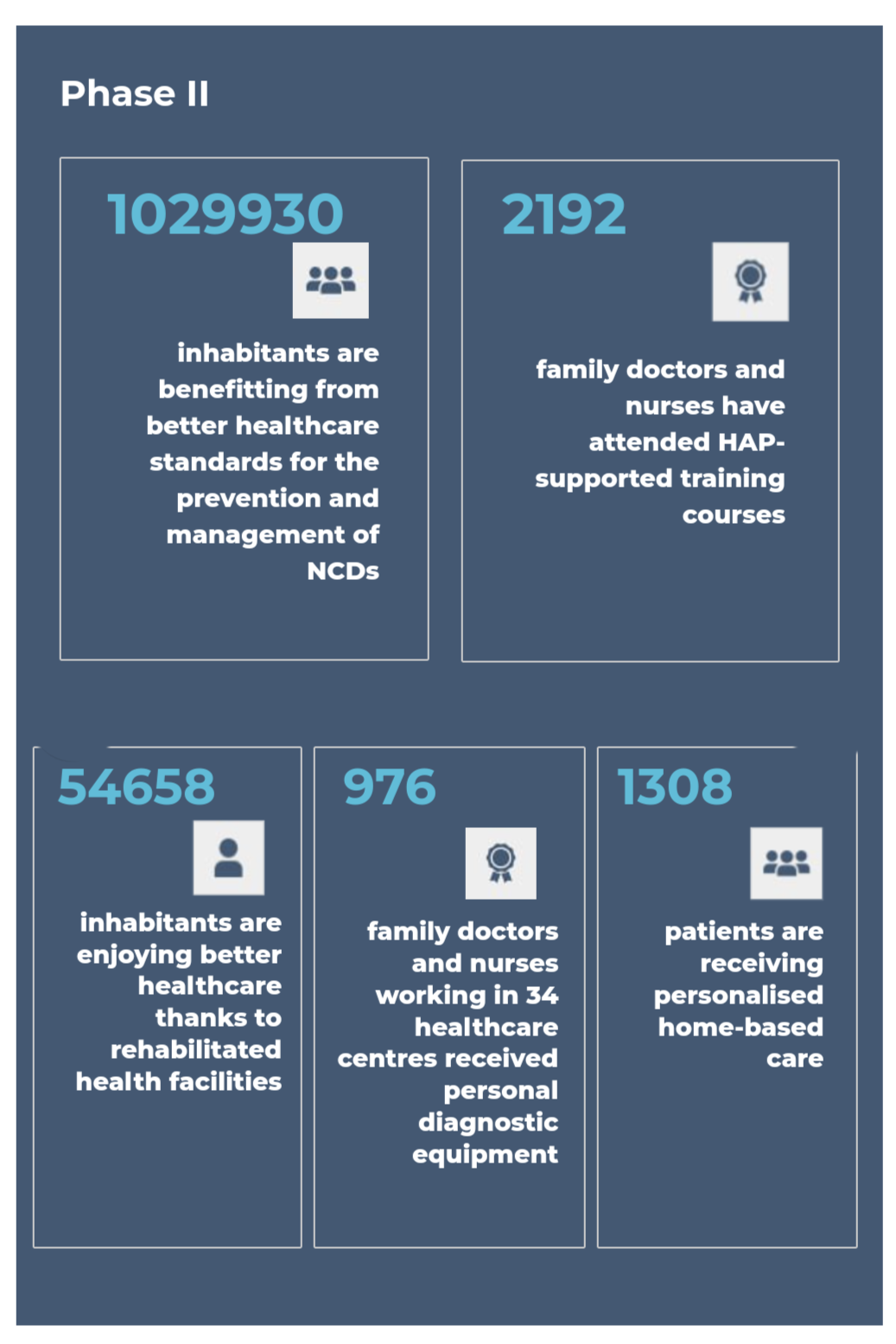
[1] A Peer Group consists of a group of health care professionals, usually family doctors and nurses of the same health centre but not limited to, who meet up based on a pre-arranged plan to share experiences, knowledge, and expertise about their clinical practice. PGs are officially recognised as a continuous medical education (CME) activity and accredited accordingly.